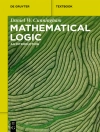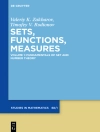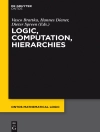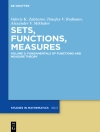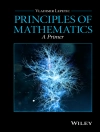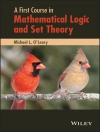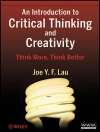The theory of oppositions based on Aristotelian foundations of logic has been pictured in a striking square diagram which can be understood and applied in many different ways having repercussions in various fields: epistemology, linguistics, mathematics, sociology, physics. The square can also be generalized in other two-dimensional or multi-dimensional objects extending in breadth and depth the original Aristotelian theory.
The square of opposition from its origin in antiquity to the present day continues to exert a profound impact on the development of deductive logic. Since 10 years there is a new growing interest for the square due to recent discoveries and challenging interpretations. This book presents a collection of previously unpublished papers by high level specialists on the square from all over the world.
Daftar Isi
1 Historical and Critical Aspects of the Square.- 2 Philosophical Discussions around the Square of Opposition.- 3 The Square of Opposition and Non-Classical Logics.- 4 Constructions Generalizing the Square of Opposition.- 5 Applications of the Square of Opposition.
Tentang Penulis
Jean-Yves Beziau is Professor at the Federal University of Rio de Janeiro (UFRJ) and researcher of the Brazilian research council (CNPq). He has a Ph D in philosopy and a Ph D in mathematics. He has been working in France, Poland, Switzerland, Brazil and USA (Stanford and UCLA). He is Editor-in-Chief of the journal Logica Universalis. He has been working on the square of opposition since many years organizing world events on the subject.
Dale Jacquette is ordentlicher Professor für Philosophie, Abteilung Logik und theoretische Philosophie, Universität Bern, Switzerland. He studied philosophy at Oberlin College (AB 1975) and Brown University (MA 1981, Ph D 1983), and has worked on a variety of formal logical and philosophical projects related especially to the concept of intentionality. His research on the square of opposition is a result of converging interests in Aristotle’s philosophy, intensional predicate term logics, and historical precursors of contemporary logic.




